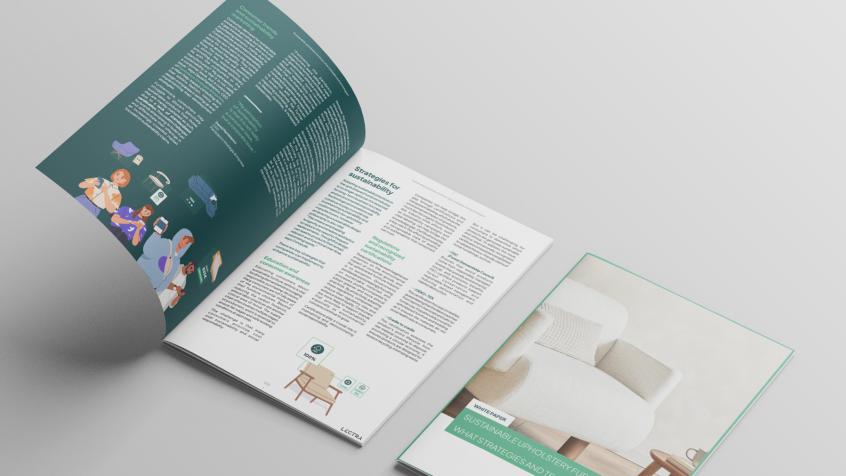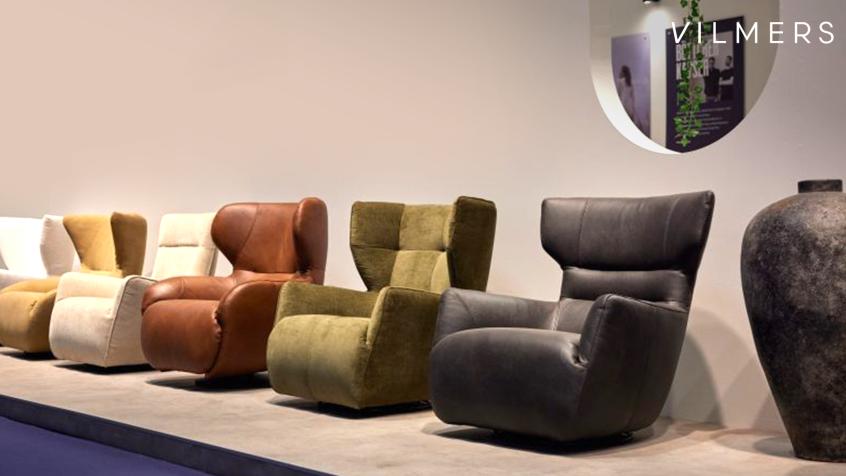Sustainability and key regulations in upholstered furniture manufacturing
As regulatory pressure and consumer expectations grow, manufacturers must adopt strategies that align with sustainability goals, ensuring compliance while maintaining competitiveness.

Ensure regulatory compliance
With evolving regulations such as the EU Deforestation Regulation, manufacturers must ensure that their raw materials are responsibly sourced and fully traceable.
Compliance is no longer just about avoiding penalties—it’s about building consumer trust and strengthening brand reputation.
Lectra’s digital solutions provide end-to-end traceability, helping manufacturers monitor material origins and supply chain transparency.
By integrating these tools, companies can ensure full compliance with EU sustainability regulations while demonstrating accountability to eco-conscious consumers.

Overcoming material waste
Sustainability is no longer an option—it’s a business imperative.
According to a Furniture Today survey, 77% of manufacturers consider sustainability a top priority, yet CSIL research shows that 45% struggle to implement effective solutions.
 One of the biggest challenges? Material waste. The upholstered furniture industry generates 5 million tonnes of waste annually, leading to increased costs and environmental impact. Manufacturers need smarter solutions to minimize waste while maintaining high production efficiency.
One of the biggest challenges? Material waste. The upholstered furniture industry generates 5 million tonnes of waste annually, leading to increased costs and environmental impact. Manufacturers need smarter solutions to minimize waste while maintaining high production efficiency.
Lectra’s AI-powered cutting solutions help manufacturers optimize material utilization, leading to significant reductions in waste and cost savings.
By implementing these technologies, businesses can streamline production while meeting growing sustainability expectations from both regulators and consumers.
Reducing energy consumption
High energy consumption is a significant challenge for upholstered furniture manufacturers, leading to rising operational costs and increased carbon emissions.
As sustainability regulations tighten, companies must find ways to improve efficiency while maintaining profitability.
Lectra’s intelligent production workflows optimize energy usage by streamlining manufacturing operations, reducing unnecessary power consumption, and enhancing overall productivity.
By implementing AI-driven efficiency measures, manufacturers can lower CO₂ emissions, contribute to a cleaner production process, and align with global energy efficiency standards.
Beyond sustainability, energy optimization translates into real cost savings. With lower power usage and reduced operational expenses, businesses can remain competitive while meeting evolving environmental regulations.
With Lectra, energy efficiency becomes a strategic advantage, not just a compliance requirement.
Partnering with Lectra for a sustainable future
- Efficient Material Utilization: Advanced cutting solutions that minimize fabric waste by up to 15%, optimizing resource usage.
- Smart Production Technologies: Leveraging Industry 4.0 solutions to enhance production efficiency while reducing environmental impact.
- Sustainable Design Philosophy: Encouraging longevity and modularity to ensure products remain functional and stylish for years to come.
Embrace sustainable manufacturing
The upholstered furniture industry is at a turning point where sustainability and profitability must go hand in hand. Lectra’s AI-powered solutions offer manufacturers the tools to reduce waste, optimize energy use, and stay ahead of evolving sustainability regulations.
More information
Read the full article
Latest resources









